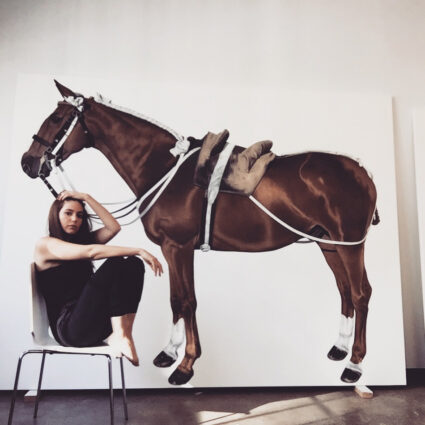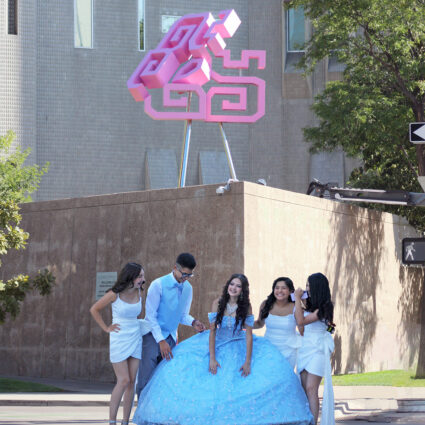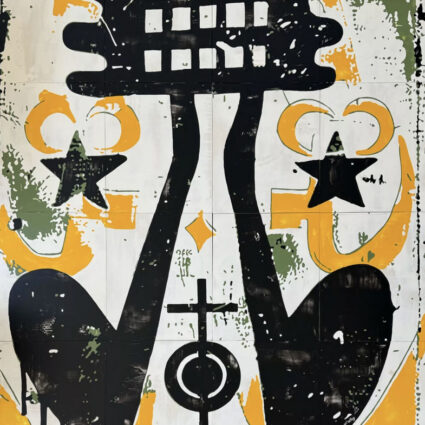Criticism is a vital part of a community that endeavors to engage and progress culturally and artistically. By criticism, I mean informed writing that expands upon and critiques, positively or negatively, the artwork, exhibitions, events, or ethos presented in the arts and culture sector.
This kind of criticism is a formalized avenue for the exercise of critical thought, a means to ask questions of and about organizations that promote cultural work and thus make value judgments that reflect on the community as a whole. In an age of rampant anti-intellectualism critical thinking, and its codification in the form of published criticism is more important than ever.
The Magazine was founded to provide real critical feedback to this arts community and to champion New Mexico art and artists, and we continue with this pursuit as part of our mission today. No other publication in Santa Fe, or in New Mexico that I know of, publishes art criticism or has critical discourse as a central tenet of its editorial mission. The lack of critical writing may have much to do with the fact that we live in a small community full of colleagues and friends whom we want to support, but it is also rooted in the current fundamentally commercial and tourism-focused nature of the Santa Fe art market.
Many publications that cover arts and culture are aimed at a general-interest audience. A general-interest audience is not best served by a no-holds-barred honest probing of the integrity of a recent major museum exhibition. Or an exhibition review that questions the latest body of work by a popular or commercially successful local artist. But this kind of honest and thorough writing does serve an audience that has a profound engagement with art.
Unmitigated honesty and constructive feedback are the only ways to encourage each other onward and upward.
Our team and our writers choose to write about artwork, events, and ideas about which they are genuinely curious or excited, and which brightly contribute to the larger arts discourse relevant to this community and region. Within this context, critical writing seeks to expand upon unrealized (or realized) potential and to encourage meaningful dialogue that leads to real innovation. It refuses to settle for the ill conceived or poorly delivered, but it does not seek to push anyone down. Incessant cheerleading and mutual back-patting contribute to stagnation and complacency. Unmitigated honesty and constructive feedback are the only ways to encourage each other onward and upward.
To commit thoughtful critical writing to print for an invested audience with an abiding respect for arts, culture, and community is the mission of The Magazine. With each issue, I believe we are expanding the conversation about art in New Mexico. I am continually amazed and excited by the creative work I see around me in this state, and I only want to see more and better!
There is (always) more to do to carry out this work. If you believe that critical writing and critical thinking are important, we, like many media outlets today, need the support of our readers. There are two ways you can contribute: 1. Become a subscriber to The Magazine (and have every issue conveniently delivered to your door, southwestcontemporary.com/store). 2. Contribute your voice. We have an open call for writers at southwestcontemporary.com/pitches, or you can send us your thoughts in a Letter to the Editor, lauren@southwestcontemporary.com.
As ever, thank you for reading.
Lauren Tresp, editor + publisher

to the editor:
September 2018: “Field Report: Las Vegas, NM” and “Meet Your Makers: Mayeur Projects”
Las Vegas—the new Marfa
To the editor,
When Las Vegas becomes an international art center and is invaded by the affluent, the terminally hip, and the glitterati, what happens to the families that have lived there for several generations, the small business owners, the working people, and anyone else who can no longer afford to live there? Never mind. We already know from Santa Fake, SanFran, Seattle, and Denver that the trendoids, yups, hipsters, and art snobs don’t give a damn about anybody but themselves.
Ed Fields



